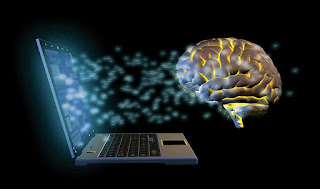Breaking Boundaries: The Future of Brain-Computer Interfaces
Brain-Computer Interfaces (BCIs) have rapidly evolved over
the past few decades, revolutionizing the way we interact with technology and
opening up new possibilities for human-machine collaboration. The concept of
directly linking the human brain to a computer system was once relegated to the
realms of science fiction, but recent advancements in neuroscience and
technology have brought this futuristic idea closer to reality.
The future of BCIs promises to break the boundaries of
traditional human-computer interaction. Imagine a world where individuals can
control electronic devices, prosthetic limbs, and even entire computer systems
with their thoughts alone. Such technology could significantly impact the lives
of people with physical disabilities, providing them with newfound independence
and capabilities.
One of the key areas where BCIs are expected to make a
profound impact is in healthcare. Researchers are exploring the potential of
BCIs in helping patients with neurological disorders, such as paralysis,
Alzheimer's disease, and ALS, to regain control of their bodies and communicate
effectively. By decoding brain signals and translating them into actions, BCIs
could enable paralyzed individuals to move robotic limbs or communicate through
computers, thereby enhancing their quality of life.
Moreover, the future of BCIs holds immense promise for the
field of education and learning. Imagine a classroom where students can learn
complex subjects by directly accessing knowledge stored in the cloud through
their thoughts. BCIs
could facilitate faster and more efficient learning by directly connecting the
human brain to vast repositories of information, bypassing the need for
conventional learning methods.
The entertainment industry is also set to undergo a significant
transformation with the advent of BCIs. Virtual reality (VR) and augmented
reality (AR) experiences could become even more immersive and interactive as
BCIs allow users to control and manipulate virtual environments simply by
thinking. Gamers, in particular, could experience entirely new levels of
realism and engagement as they navigate through digital worlds using their
minds.
However, the future of BCIs also raises important ethical
and privacy concerns. As technology delves into the realm of brain data,
ensuring the security and privacy of individuals' thoughts becomes a paramount
challenge. Questions surrounding consent, data ownership, and potential misuse
of this technology need to be addressed to build public trust and confidence in
adopting BCIs.
Nonetheless, the future of BCIs remains promising, and as
research continues, we may unlock even more astonishing applications. From
aiding individuals with disabilities to enhancing learning, communication, and
entertainment, BCIs have the potential to break the boundaries between humans
and machines, leading to a future where the power of our thoughts shapes the
world around us.




Comments
Post a Comment